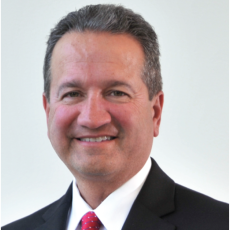Having worked at many big pharma companies, what first piqued your interest in First Wave BioPharma?
First Wave BioPharma - previously known as AzurRx following an acquisition in 2021 - caught my attention when I heard about Adrulipase (formerly MS1819) – the Company’s drug to treat a life-threatening pancreatic digestive disorder in patients with cystic fibrosis and chronic pancreatitis. It is a naturally occurring ‘vegan’ product derived from yeast cells that could compete with much the standard of care therapy in the market – all of which consist of the ground-up pancreases of pigs. We believe that Adrulipase has the potential to become a more effective and safer drug than the pig products which have been used for the past 100 years.
What are your plans around the commercialization of First Wave’s pipeline?
I have launched over 20 products during my career, and it is something I enjoy. However, I also recognize how expensive it is. When we reach phase three, we will most likely bring in a partner with the resources to commercialize the product globally.
We are aware that this can be a more difficult journey to take a small biotech company – what are some of the advantages and some of the struggles?
The main advantage is that we are much closer to the academic researchers, other smaller companies, and the overall research ecosystem fighting together to cure unmet needs.
Our struggles mainly revolve around the constant need to raise capital. One example surrounds the indications of our Grades 1 and 2 Immune Checkpoint Inhibitor-Associated Colitis. We believe it has the potential to provide immense positive effects for late-stage cancer treatment patients by allowing them to remain on therapy and eliminating potentially life-threatening side effects, but need to raise the $35 million for the study, one of many such hurdles.
What is your view on the Inflation Reduction Act (IRA) and its potential impact on innovation?

The IRA does the opposite of what its name suggests, and the Democrats will pay the price for this.
The largest impact of the IRA are the price cuts to Medicare, which presents a bad scenario for the industry. Nancy Pelosi has been looking to lower the price of medication in a dogmatic way. What we know about price controls, is that they do not work. The biotech industry in Europe has struggled because of similar reductions. Anyone who has grown up in a Communist country understands that one cannot stop paying for innovation and expect innovation to carry on. Some of the most expensive drugs in Medicare are orphan drugs that are meant for a few patients. By controlling prices, it will lead to private insurance prices going up.
The pharmaceuticals industry is one of the most profitable businesses in the U.S. On a per capita basis, we provide more tax revenue, both on a state and federal level, than any other industry. The only other global pharma industry that rivals the U.S. is in Switzerland. Why, as an American, would you want to destroy one of the most profitable businesses that this country has, is beyond comprehension. The problem is a lack of understanding of how drug pricing works. Insurers are a crucial part of the system and need to be considered whenever new policy surrounding drug pricing is passed.
Why do you believe the pharmaceutical industry is misrepresented globally?
I do not believe the public understands the business. All they see is prices going up and record profits. Big pharma does a terrible job of explaining what they do, and there is little price transparency. They tend to ignore the problems. When I was younger, big pharma CEOs had grown through the ranks with science backgrounds. Now the CEOs are coming from the banking industry.
People forget that if a patient proves that they are unable to afford a drug, the system works in such a way that they can obtain it for free or have its cost subsidized. We need to spend more money explaining to the public what we do. We went from being 9% of US dollar healthcare spend to 14% for prescriptions. But we have saved trillions of dollars in hospitalizations. As the Beatles say, ‘Money can’t buy you love’, but the pharmaceutical industry can buy you time with your loved ones.
There are key milestones ahead for First Wave BioPharma, what are the timelines for clinical trial approvals and beyond?
We face the worst market for fundraising in four years, but the plan is to stick to it and to try and make our money go as far as we can. We expect to have results from a bridging study of a new formulation ready in Q2 2023. Next year we plan to bring a partner in and move into Phase 3 clinical trials. There are also potential plans for First Wave to be acquired in the coming two years, which will propel the therapeutics we are working on to the next level.





